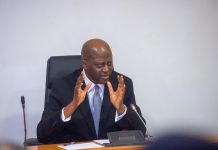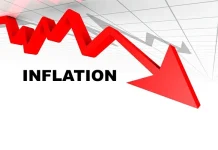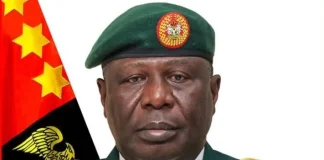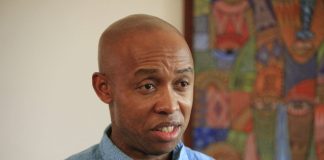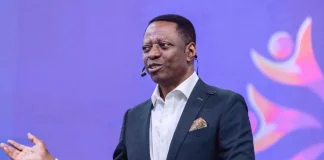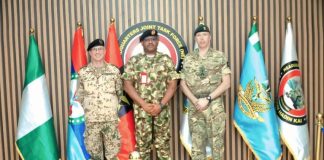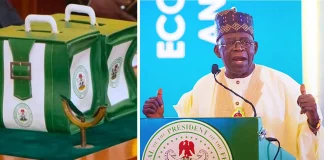🌿 Ruzu Non-Alcoholic Herbal Bitters
Ruzu Non-Alcoholic Herbal Bitters is a natural health supplement specially formulated to:
- ✅ Promote general wellness
- ✅ Detoxify the body
- ✅ Support the treatment of various ailments
Made from a powerful blend of 100% organic and medicinal herbs, Ruzu is completely alcohol-free, making it ideal for:
- 👪 All age groups
- 🌱 Health-conscious individuals
- 🌿 Anyone seeking non-alcoholic herbal remedies
Whether you're looking to boost your vitality, cleanse your system, or support healing the natural way, Ruzu Bitters offers a trusted herbal solution.
Since women in Nigeria are the center of a thriving economy, the World Bank and the federal government are urging an immediate acceleration of efforts to empower them.
Speaking on the sidelines of the IMF-World Bank’s annual meetings in Washington, DC, on Thursday, Nigeria’s Minister of Finance and Coordinating Minister of the Economy, Wale Edun, discussed the World Bank’s Gender Strategy 2030 and bemoaned the fact that the nation was still far from making progress in advancing social justice, enhancing the lives of women, and guaranteeing equal access to opportunities.
Speaking about the status of gender equality, Edun pointed out that although intentional attempts have been made, the country’s objectives for women’s economic inclusion and development have not been met, and progress has been sluggish.
Given that women make up about half of Nigeria’s population, Edun emphasized the importance of empowering women economically.
Consider operating a two-engine aircraft with just one engine. Empowering both will enable you to go higher, faster, and farther. The same is true for our economy—we can achieve unprecedented growth in Nigeria by empowering women,” Edun said.
Read Also: Union Bank Sets New Industry Standard with Comprehensive Maternity Leave and Onsite Crèche Facility
He emphasized the National Action Plan for Women’s Economic Empowerment, which was established by the government to give women organized assistance through affinity groups.
These organizations, which provide training, financing, and life skills to help women support one another as they develop businesses and better their lifestyles, are currently helping over 22,000 women. These groups are now vital points of entry for donor and governmental programs that support women’s empowerment.
Edun also mentioned initiatives to address the difficulties faced by young girls, especially those between the ages of 10 and 20.
In addition to offering financial assistance and entrepreneurship training to help females overcome cultural obstacles including early marriage and gender-based violence, the World Bank supports programs that guarantee girls continue their education. Giving young women the resources they need to thrive in both life and business is the aim.
Additionally, a $600 million Digital and Creative Enterprise program that targets young women between the ages of 15 and 35 is using Nigeria’s digital economy to empower women. The program offers startup financing, technological training, and skill development, with 30% of the funding designated for women. This paves the road for women to succeed in the expanding creative and digital industries.
Edun recognized that much more has to be done in spite of these efforts.
The World Bank Group’s 2030 goals include: enabling 300 million more women to access broadband, which will unlock financial services, education, and employment opportunities; supporting 250 million women with social protection programs, with a particular focus on the most vulnerable and impoverished; and providing capital to 80 million more women and women-led businesses, which will alleviate a significant barrier to the growth of entrepreneurship.
According to World Bank Group President Ajay Banga, “increasing women’s economic participation not only strengthens families and communities but also boosts the global economy.”


